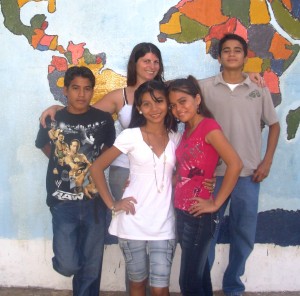By John Mattingly
On May 5, 2011, I happened to be driving back from Denver, listening to “The Mike Rosen Show” on 850 KOA. I have an inclination (perhaps flawed) to periodically hear what the likes of Rosen and Limbaugh have to say about Goodman, Flanders, and in this case, Quillen.
I was surprised when Rosen announced that he and Ed Quillen had written columns in the Denver papers on the same day regarding the death of Osama bin Laden. My first thought was, “Hey, I know Ed. Ed’s going to be on the radio. Go Ed!”
Rosen, however, didn’t invite Ed to call in. Instead, Rosen compared his column with Ed’s, amplifying the “incredible” difference between them. I recall Rosen doing this several times in the past with other columnists who disagreed with him, never entertaining a rebuttal. But, as Rosen would say, “It’s my show, and I can do what I want.”
Rosen summarized the key points of his column:
1. The end of Bin Laden is not like VJ Day. We must continue all efforts to protect ourselves from Islamic extremists. To do otherwise would be IRResponsible (emphasis actual).
2. The brave operatives who conducted the mission to take out bin Laden are heroes and deserve our gratitude.
3. Though all Islamists are not terrorists, most terrorists are Islamist.
4. Some personal freedom must always be sacrificed for security. Such sacrifice is Essential (emphasis actual).
Quillen also concluded the death of Bin Laden was no VJ Day, but noted that even though a terrorist leader is now dead, nothing is likely to change – the subtext being maybe it’s time to get real about how much security we really need. Or, perhaps more to the point, how much security can we really afford?
Rosen assailed Quillen’s point by asserting it was little more than complaining about the “inconveniences” of heightened security.
But wait a minute. As Quillen suggested, the “War on Terror” has been a lot more than an inconvenience. Alan Beaty of The Financial Times recently calculated the hard costs of our heightened security since September 11, 2001 at $2.3 trillion, with consequential costs of about another $3 trillion. And these costs are ongoing and entrenched. I took Quillen’s point to be less about the inconveniences of excessive security measures and more a lament over their mounting insanity. At $5+ trillion and counting, we’re not talking about inconveniences, we’re talking about spending that has the potential to cripple our economy with debt, high interest rates, and a colossal diversion of resources from our necessary national Repairs & Maintenance.
Rosen seems to be on board with Dick Cheney’s One Percent Doctrine, which stated that if there is a one percent chance of a terrorist attack, one hundred percent of our resources should be deployed to combat it.
The flaw in Cheney’s Doctrine is that the threat to U.S citizens from terrorism has never reached one percent on an actuarial basis. The probability of a U. S. citizen being killed in a terrorist attack is approximately one in a million (out of a population of about 350 million, about 3,500 U.S. citizens have been killed over a ten year period in the combined World Trade Center and Oklahoma City attacks, putting the probability at roughly 1/1,000,000) .
Decisions about adequate protection and security are based on probabilities over time among an entire population. In the U.S., the probability of being killed in a car-pedestrian collision, a non-combat military accident, a lightning strike or a drive-by shooting are greater than being killed by a terrorist attack, yet we aren’t waging “war” against these risks. In fact, most people don’t even have insurance for them. We live with them.
What if – just what if – terrorism is a risk that really can’t be economically mitigated? What if the best any nation, or person, can do is be alert? Alert meaning good intelligence, gathered from worldwide law enforcement and undercover agents rather than torture. Alert in the way people were when they took down the shoe bomber.
Terrorism has been so blown out of proportion as a risk that it’s become politically impossible to stop fighting it. Unlike government spending on infrastructure, security spending has a low multiplier in the rest of the economy. Perhaps it’s time to toss Rosen the question: how REsponsible and Essential is it to continue spending our national blood and treasure at the current pace on a risk that really can’t be eliminated? On a down-home basis, would Rosen pay $500,000 a year to insure his $500,000 home against the risk of a meteor hitting his roof?
People in the U.S. have a consistently weak aptitude for assessing risk, particularly when it comes to low incidence, high consequence events such as terrorist attacks, dam breaks, earthquakes, and category five hurricanes. We seem to be okay spending trillions to fight the terrorists “over there” while our own roads and bridges are deteriorating, increasing the risk of traffic accidents which kill more people every month than terrorists kill every ten years.
Then we routinely ignore the fast food we had for lunch that increases our risk of heart disease while eating that meal in a big SUV equipped with four air bags. We ride our bike helmetless to Whole Foods for organic produce. We spend millions to fight bird flu but fail to wash our hands. And now we’ve spent billions more to kill bin Laden.
If we’d captured bin Laden in the months following 9-11-2001, it would have been a solid achievement of law enforcement. To get him within the borders of our presumed ally, Pakistan, almost ten years and $5+ trillion later, is a dubious triumph. From a strategic standpoint, it might have been better not to come out pounding our chest to the rest of the world, and instead keep quiet about it, using the intelligence gathered from bin Laden’s capture to stage more stealth operations, picking off terrorists in the dark of night.
At most, the demise of bin Laden demonstrates that fighting asymmetrical enemies such as terrorists is best done with special forces, undercover operatives, with targeted attacks rather than with invasions, occupations, nation building, and forced democracy.
John Mattingly cultivates prose, among other things, and was most recently seen near Creede.



